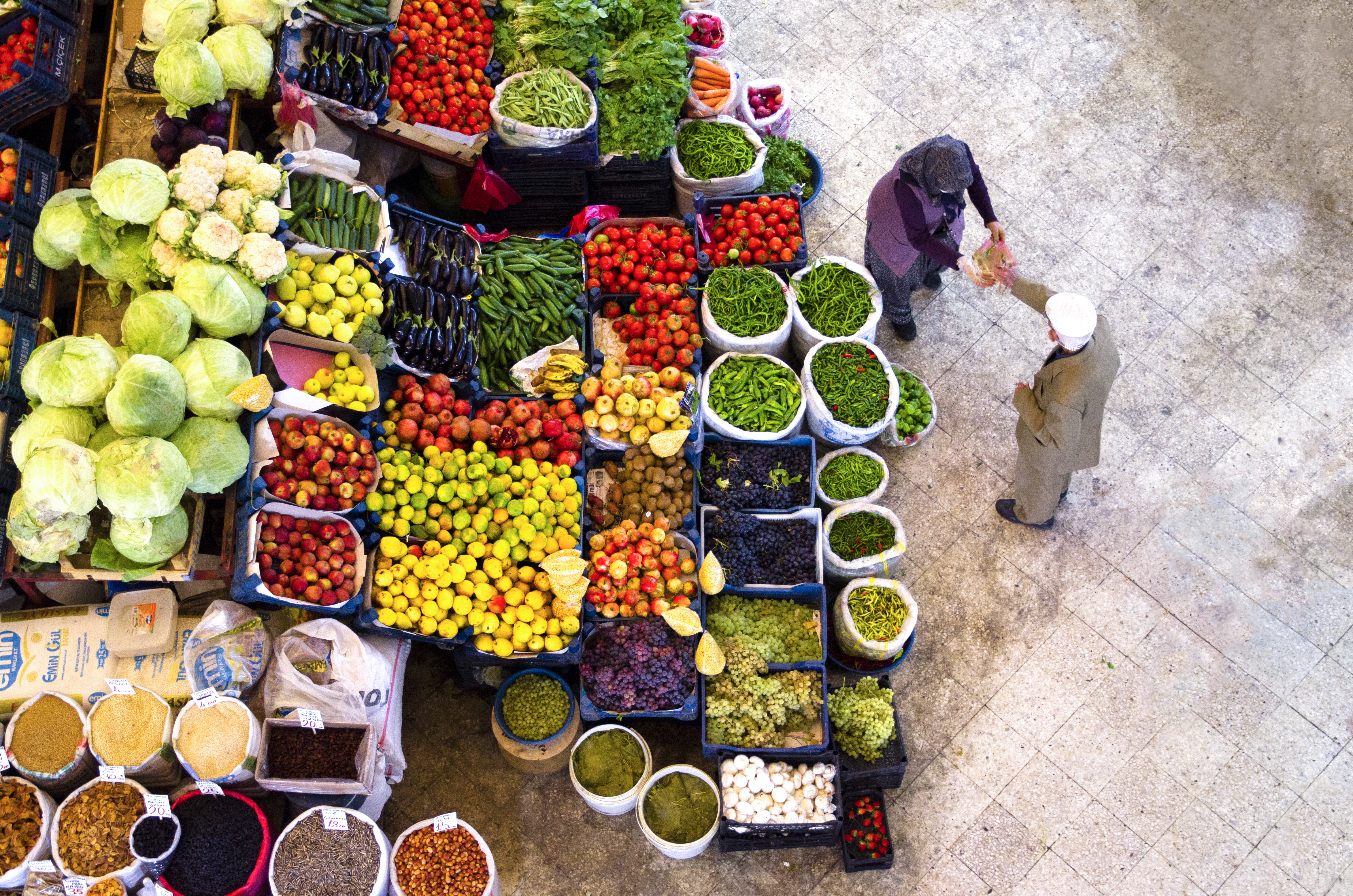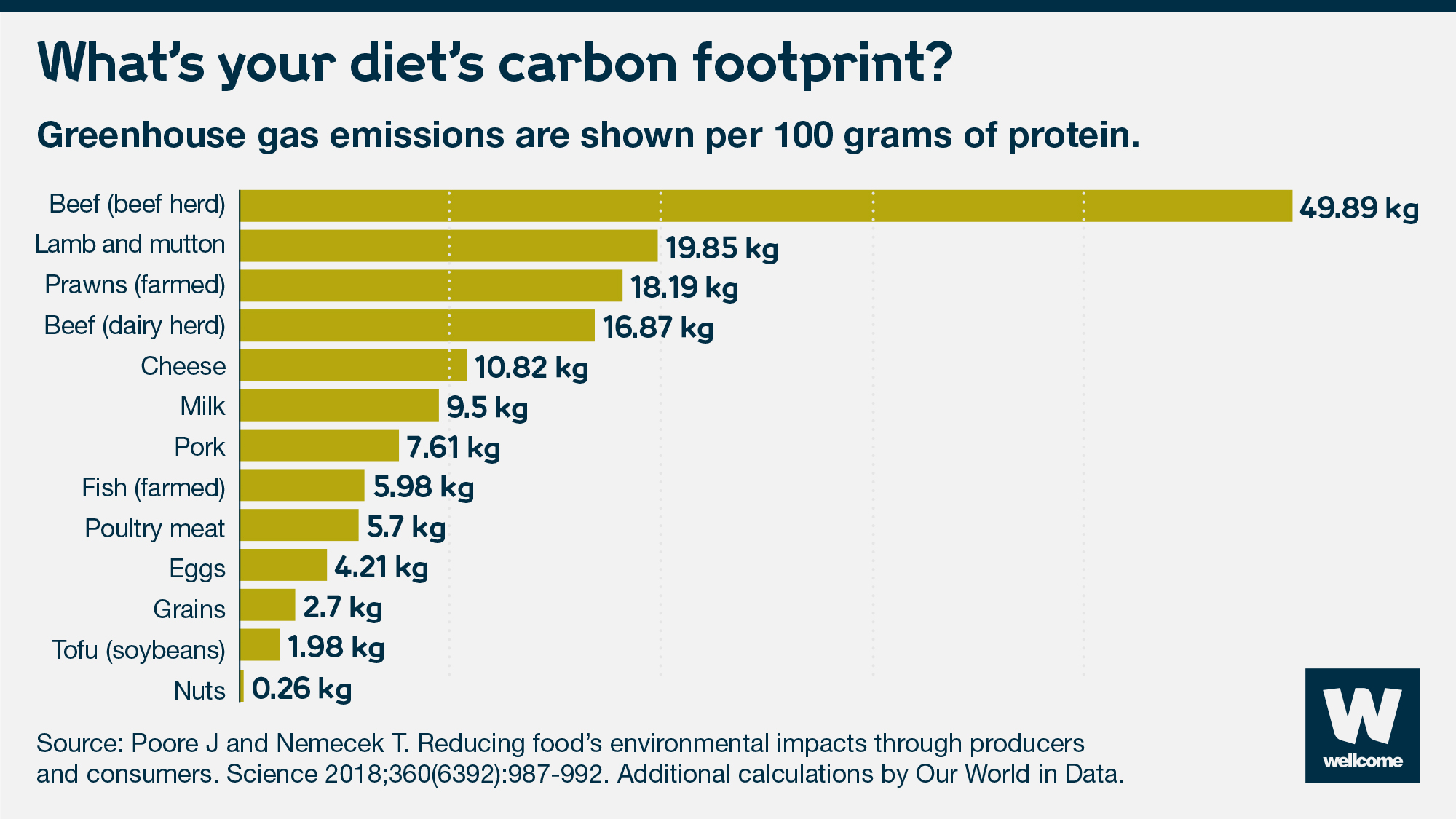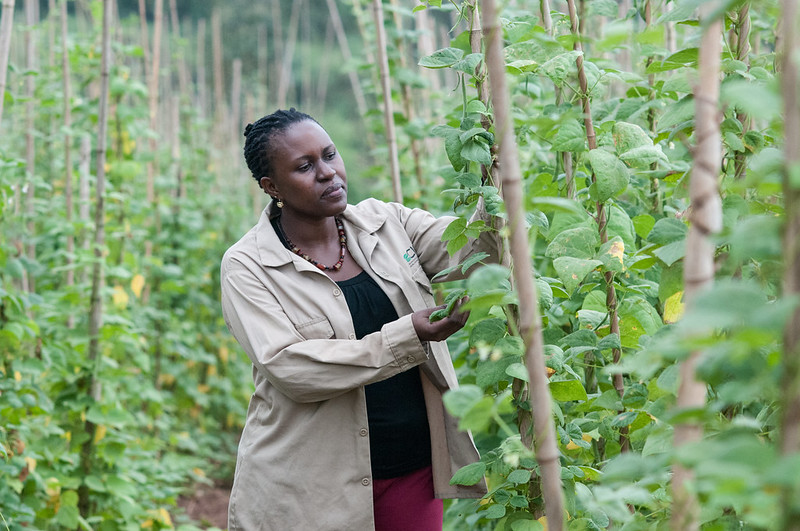How changing your diet can help fight the climate crisis
Climate change is driven by and impacts the world’s food systems.
It’s a vicious cycle and one that’s harming human health. But, changing how we produce our food – as well as what we eat – could help protect our planet and our health.

Top view of colourful vegetables and fruits stands in a traditional Turkish grocery bazaar in Konya.

Food systems are the activities that take food from farms to mouths. That includes how we produce, process, transport, market and consume food.
Our current food systems produce more than one-third of global greenhouse gas (GHG) emissions – the main driver of climate change. That’s greater than all the cars on the planet.
More than half of the food systems’ GHG emissions originate from the demand for meat and dairy among high consumers of these foods. It’s also a result of modern industrial agriculture, which is highly dependent on fossil fuels.
GHGs affect plant and animal growth and cause rising sea levels, warmer oceans and extreme weather and climate events.
In turn, climate change is impacting our food systems and our health. How?
It’s making it harder to produce food
Rising land and sea temperatures, droughts, floods and unpredictable rainfall is harming livestock and crops.
For example, drought in half of Kenya is affecting the country’s harvests and production of its staple food, maize, is expected to reduce by 50%. Meanwhile, floods in Australia are sweeping away herds of hundreds of cows and damaging crops and farming equipment.
Globally, one in five deaths are attributable to poor diets caused by low consumption of healthy foods such as whole grains, fruits and vegetables. Climate change will reduce the yields of these foods and put more people's health at risk.
It’s reducing the nutrients in what we eat
The sixth assessment report from the UN Intergovernmental Panel on Climate Change (IPCC) highlighted that rising CO2 levels in the atmosphere will reduce the nutritional quality of our food. That includes proteins, iron, zinc, and some vitamins in grains, fruits and vegetables. Without these critical nutrients, more people will be at risk of micronutrient deficiencies, leading to serious physical and mental health consequences.
A systematic review of evidence found that reducing our vegetable intake could increase the risk of noncommunicable diseases, such as coronary heart disease and stroke and different types of cancers. Moreover, not eating enough vegetables and legumes could also lead to nutrient deficiencies.
It’s contributing to food shortages and higher food prices
Inequities in the food system are inextricably linked to poor diet and health. Most people across the world today cannot access or afford healthy food. Around two billion people face food and nutrition insecurity, and 820 million people are undernourished.
Climate change will further exacerbate this issue. With food shortages, food prices will increase, putting more people at risk of food and nutrition insecurity, chronic hunger and loss of livelihoods. Diet-related conditions such as obesity, heart attack, stroke and diabetes will also rise.
These are just a few of the existing and future impacts.
By 2050, the world will need to feed two billion more people. How can we do that with a broken food system that’s both responsible for and vulnerable to climate change?
The good news is that many adaptation and mitigation options exist. If we act now to change our diet and our food systems, we could protect the health of our planet and our people from the worst impacts of the crisis.
Here are three strategies that could help:
1. Change the world’s eating habits
Eating healthier can help fight the climate crisis.
Meat and dairy products have some of the largest climate impacts, and it’s projected that demand for these foods will grow by 68% over the next three decades.

Greenhouse gas emissions are shown per 100 grams of protein across a global sample of 38,700 commercially viable farms in 119 countries. Greenhouse gas emissions are measured in kilograms of carbon dioxide equivalents (kgCO₂eq) per 100 grams of protein.
Source: https://ourworldindata.org/grapher/ghg-per-protein-poore

If regions with diets high in calories and animal-sourced food eat more plant-based foods, it will significantly help lower emissions, reduce mortality from diet-related risks and improve health.
What’s more is that there are 14,000 existing edible plant species with excellent nutritional profiles that we could tap in to. We currently use less than 200, with around 75% of the world’s food coming from just 12 plants and five animal species. Diversifying our crops will also help to protect our food from floods, droughts and diseases.
2. Encourage sustainable agriculture and food practices
There are several opportunities to make agriculture and food processes more climate resilient.
One intervention is improving soil quality. Healthy soil stores carbon and can reduce emissions. It also aids drought and flood management and increases crop productivity and resilience.
Another example is selecting crop varieties that are high in nutritional quality and more resilient in extreme climate and weather events. Diversification could substitute nutrient-poor staples and complement actions to vary what we eat.
Meanwhile, cutting food loss and waste can help reduce hunger and save energy and water. Around 17% of all food worldwide goes to waste every year – and if food waste were a country, it would be the third largest greenhouse gas emitter after China and the US.

Clare Mukankusi, CIAT bean breeder in Kawanda, Uganda, leads breeding efforts for the bean genebank.

3. Increase investment in fair, science-based solutions
The effects of the climate crisis are not felt equally. The countries least responsible for it are the most vulnerable to its impacts and have fewer resources to act.
It’s critical that rich countries, who are the most responsible, step up and lead the transformation of our food systems in the mitigation of climate change. They should also support lower-income countries with the necessary finance and technology to adapt to more sustainable and climate-resilient local food production.
The world must take substantial, timely action now to cut greenhouse gas emissions and support a transition towards climate-resilient food systems.
More collaboration and investment are vital, and our actions must be backed by science if we are to avoid the worst-case scenarios of climate change and its impact on our health.
That’s why Wellcome is supporting research to urgently generate evidence through programmes such as Sustainable & Healthy Food Systems (SHEFS), Livestock Environment And People (LEAP) and the Food Systems Economics Commission. Because having better evidence on the nature of the problem and solutions will make us better placed to build a healthy, sustainable future for all.
We are funding teams to catalyse the development of climate and health research. Explore our current funding call:
Biological vulnerability to extreme heat in maternal and child health
Climate change is driven by and impacts the world’s food systems. But, changing how we produce our food – as well as what we eat – could help protect our planet and our health.